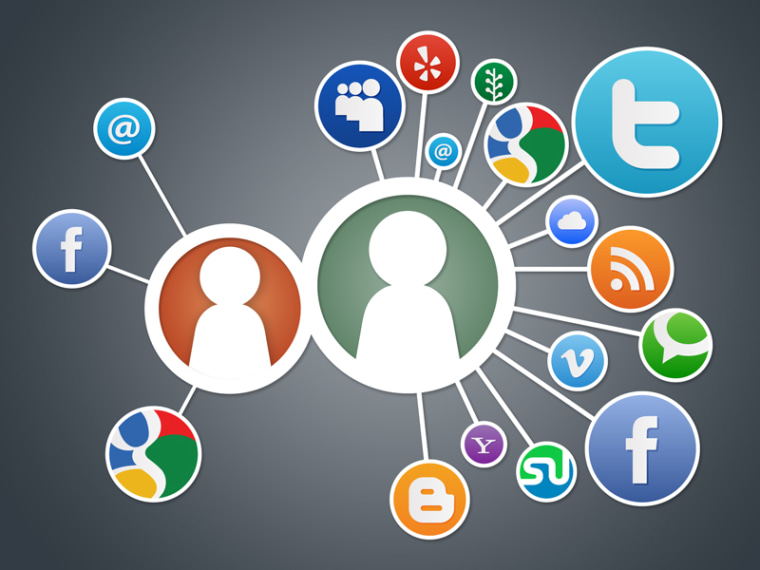If you feel like someone is watching you, you're right. If you're worried about this, you have plenty of company. If you're not doing anything about this anxiety, you’re just like almost everyone else.
While 21st-century technologies make the futuristic notion of perpetual surveillance a reality, and well over half a billion consumers willingly telling their life stories on social networks, defining, preserving and working pragmatically with privacy is more important than ever.
Yet despite all the talk about it, privacy is still one of the most elusive concepts of our time.
Five years ago, msnbc.com published a weeklong series that tried to get at Americans' deepest feelings about privacy. Back then, 60 percent of users agreed that privacy is "slipping away, and that bothers me."
Since then, much has changed. Sharing information through social media has become the dominant way Internet users spend their time. The feelings consumers have about privacy itself have changed too, according to a new survey conducted exclusively for msnbc.com by The Ponemon Institute.
Generally when survey takers ask questions with "more," "less," or "about the same" options, respondents overwhelmingly choose the middle option. But when The Ponemon Institute asked a representative sample of 700 people if they cared more, less or the same about privacy today compared to five years ago, we got a curious response: 36 percent said it was more important, and exactly the same number said it was less important. Only about one in four picked the middle choice, suggesting people's feelings have become polarized.
Why? Digging through the respondent's personal characteristics, one element stands out — social networks.
Whether or not someone is an active user of social networks is a direct predictor of whether their privacy concerns have increased or decreased, the data tell us. By overwhelming numbers, avid users care less about privacy than five years ago. Those who avoid social networks care more. For example, only 14 percent of avid social network users care more about privacy today than in 2006. In other words, frequent use of Facebook and Twitter somehow calms people's anxieties about privacy.
This is not to say that social network users are naive — 66 percent of them say they have less control over their personal information than five years ago, about the same (71 percent) as social network avoiders.
It simply appears that their use of social networks, and the lack of a dramatic negative privacy event that might change their outlook, makes them less queasy about privacy in the 21st century.
"When you become active in social networks, you probably have reached the conclusion that this privacy thing isn't all that important," said Larry Ponemon, who conducted the survey. "You probably think it’s a little bit of hype."
Alessandro Acquisti, a behavioral economist who studies privacy at Carnegie Mellon University, said he's not surprised that battle lines are being drawn around use of social networks.
"Once people make a decision, they tend to become even more militant about their decision," he said. The phenomenon is sometimes called confirmation bias, as people tend to see only factors that confirm the "rightness" of earlier decisions. "First I select myself into my group — for or against social networks — then I prove to myself the decision was right."
What is privacy?
Much confusion in any privacy discussion stems from a lack of clear definitions. When we asked msnbc.com readers five years ago to say what privacy meant to them, we received dozens of submissions. Among them: Fear of being watched, fear of government intrusion, worry over companies tracking purchases, or technology such as GPS tracking their physical movements.
The most common, however, was simple, and very American: "The right to be left alone." That echoed the definition of privacy given by former Supreme Court Justice Louis Brandeis back in 1928.
"The makers of our Constitution undertook to secure conditions favorable to the pursuit of happiness," Brandeis wrote. "They sought to protect Americans in their beliefs, their thoughts, their emotions and their sensations. They conferred against the government, the right to be let alone — the most comprehensive of rights and the right most valued by civilized men."
It’s worth noting that this, the seminal American definition for a right to privacy, was penned as part of a dissenting opinion.
Today, some academics, such as George Washington University's Daniel Solove, describe this notion in a slightly more subtle way: There's value in never having to explain yourself.
Keep reading - the msnbc.com special report on privacy continues:
